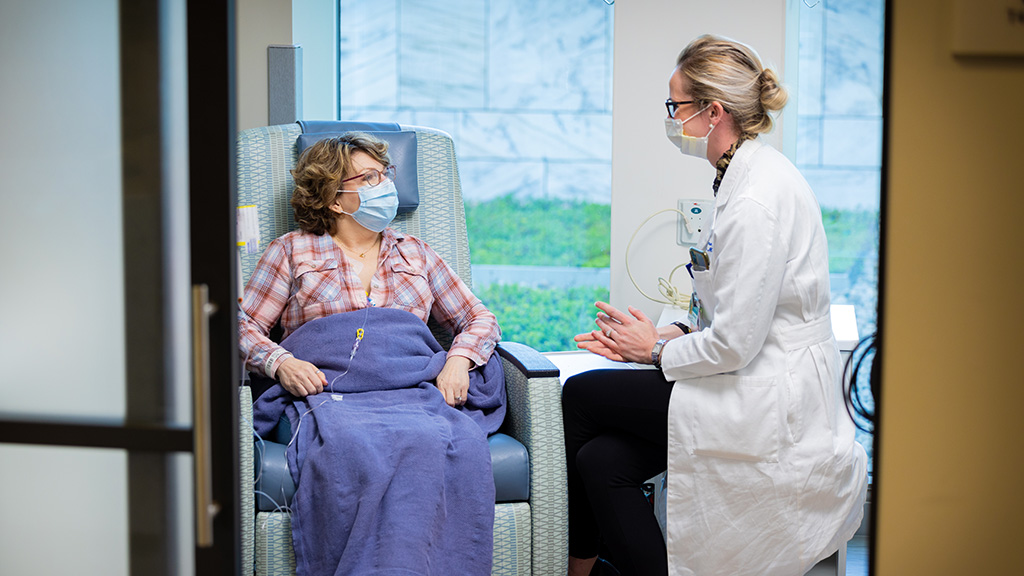The safe and effective conduct of clinical research is one of the most fundamental goals for every faculty member within our department.

Our investigators conduct a broad range of studies, including a large number of clinical trials that evaluate new drugs or agents, new devices, new regimens, and/or new strategies for the treatment and prevention of cancer.
The basis of all clinical trials is the delivery of the highest level of clinical care, and through clinical trials, patients have access to the latest and most innovative treatment options. Many of the clinical trials we conduct were written by our faculty, and those trials represent a significant commitment of institutional resources. It is also important to realize that clinical trials are not reserved for patients at the 'end stage' of their disease. Each disease group in our department has trials for patients at every phase of their care, whether they are recently diagnosed, or have relapsed disease. It is also possible that the trial may not involve a different treatment. There are tissue collection trials where patients agree to give a sample of their tumor tissue for future study.
Types of Clinical Trials
There are three different groups of clinical trials which are described in phases of development.
All trials function with very strict oversight from internal and external agencies. Clinical trials are scientifically reviewed and approved by an Internal Review Board, as well as by sponsors or the National Cancer Institute. There are often more individuals watching the care of a patient on a trial as there
Clinical trials are an important part of making progress in medicine overall, and specifically in oncology. Access to new agents and cutting-edge clinical trials is one of the most important missions for faculty. It is important patients feel free to ask questions about the trials being proposed, and that these questions are fully answered before patients sign consent forms or begin therapy.
Phase I Clinical Trials
Phase I clinical trials are geared towards early experience with a new drug, or a novel combination of two different drugs where the dosing for the combination is not well described. Phase I trials are geared towards identifying a safe dose for a given drug or combination, though it is important to realize that very often patients can have good and durable responses in the context of phase I clinical trials.
At Winship Cancer Institute, phase I clinical trials are conducted within the Phase I Unit located in the Emory University Hospital Tower.
Phase II Clinical Trials
Phase II clinical trials are designed to test the actual effectiveness of a given treatment once the dose has been established. A phase II clinical trial can vary in size from 15 to 100 patients depending on how they are being evaluated. Typically the main goal is to prove that a given treatment works, though safety is always a consideration in any clinical trial.
Phase III Clinical Trials
Phase III clinical trials are studies that are focused on formally comparing a new treatment against a standard treatment with the goal of replacing the older treatment with the new one. While this is the goal, it is not always the case that the new treatment is better, and thus this phase is critically important in defining the real benefit for a new treatment. Typically patients are randomized in phase III trials. This is done to avoid any type of bias in interpreting the results. Phase III trials are usually watched closely as they are often used by agencies such as the FDA to determine whether a new drug is allowed to be approved for general use.

